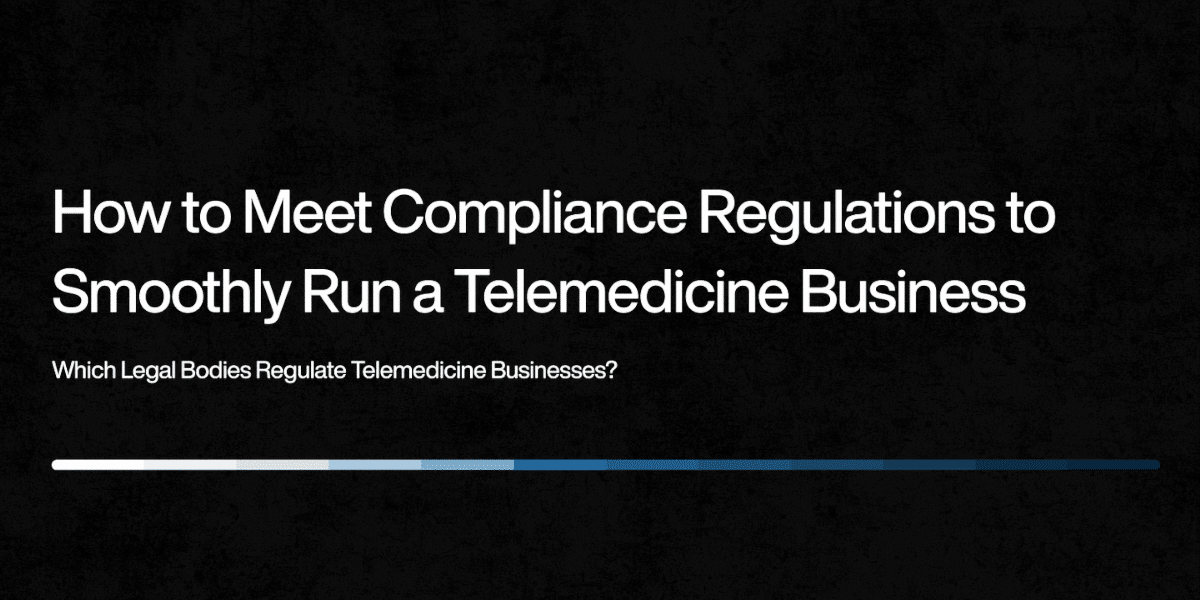Telemedicine’s Compliance Landscape
The telemedicine industry has become a vital channel for delivering healthcare services to patients who might otherwise lack access, but this convenience comes with regulatory responsibilities. Telemedicine businesses handle sensitive patient data and must adhere to strict standards to operate securely and ethically. Compliance measures are in place to protect both patients and providers, supporting telemedicine as a safe and reliable option.
Who Regulates Telemedicine?
Several federal and state bodies oversee compliance for telemedicine businesses:
- Health Insurance Portability and Accountability Act (HIPAA): Protects patient privacy and security.
- Food and Drug Administration (FDA): Ensures standards for safe medical device use and prescription practices.
- Federal Trade Commission (FTC): Monitors advertising and data privacy for telehealth.
- State Medical Boards: Handle provider licensing and state-specific regulations.
Understanding and following these requirements is crucial to maintaining regulatory compliance and delivering high-quality telemedicine services.
HIPAA Standards for Telemedicine Businesses
HIPAA mandates that any healthcare entity handling Protected Health Information (PHI) implement multiple safeguards:
- Administrative, Physical, and Technical Safeguards: Protects against unauthorized access and data breaches.
- Policies and Procedures: Written guidelines on PHI handling and storage.
- Employee Training: Ensures staff understand their role in protecting patient information.
- Business Associate Agreements (BAAs): Legal agreements with third-party vendors handling PHI.
These standards help telemedicine businesses meet the essential privacy and security requirements.
State Regulations and Interstate Practices
Each state may have additional requirements beyond HIPAA, impacting businesses serving patients across state lines. Practitioners often need separate state licensure or must operate under frameworks like the Uniform Emergency Volunteer Health Practitioners Act for emergency interstate practice or the Sports Medicine Licensure Clarity Act for athletic care across borders.
FDA Compliance and Telehealth
The FDA regulates medical devices used in telemedicine to ensure patient safety and compliance with prescribed standards. Telemedicine providers prescribing drugs during virtual visits are expected to follow FDA guidelines. For dietary supplements offered via telehealth, truthful information and adherence to labeling standards are required.
FTC Guidelines for Telemedicine
The FTC enforces regulations on advertising practices, requiring telemedicine companies to present clear and accurate information. This includes data privacy compliance, with the FTC overseeing claims made about services and ensuring consumer data protection.
Building a Compliance Framework
A robust compliance framework should include:
- Data Protection Measures: Secure data storage, encrypted communications, and regular risk assessments.
- Ethical Service Delivery: Maintaining transparency, obtaining informed consent, and respecting patient confidentiality.
- Staying Informed on Regulatory Changes: Compliance laws evolve, so regular updates are necessary.
Looking Ahead in Telemedicine
Telemedicine’s role in healthcare continues to grow with advancements in technology. Compliance standards are integral to this progress, making patient-centered and ethical practices essential. For telemedicine providers, compliance is more than a requirement; it’s an opportunity to build trust and assure safe care as healthcare evolves.
Summary
Telemedicine providers should prioritize compliance and ethical standards to protect patients and support the credibility of telehealth services. Following regulatory guidelines from bodies like HIPAA, the FDA, and FTC helps ensure telemedicine remains a trusted solution in healthcare.
Discover strategies to navigate compliance requirements and support efficient, reliable telemedicine services in our guide on “How to Meet Compliance Regulations to Smoothly Run a Telemedicine Business.”
Published by: Holy Minoza







